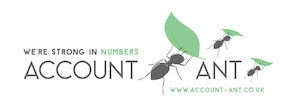Denholme – Is it a Village? Is it a Town? Who knows!!! But it’s full of small independent Business owners!
I thought now was a good time to pay homage to the village we’ve called home since 2008… Denholme.
Denholme means “a flat in the hillside” in old Norse, which is very accurate. Some of the streets can be impassable in the winter but it’s so great being surrounded by the hills and the fields.
Denholme is a really small town… or is it a village?? Can’t quite put my finger on that one. So a Town / Village which, when you mention it to people, they either say “yeah, I know Denholme” (much to our surprise) or “Blimey, it’s a bit cold up there” 😊
And legend would suggest that it IS in fact, three coats colder! …
And it actually is! Officially!

Denholme originally had over 50…yes, 50! Commercial Properties – including 8 pubs…well after a hard day in the Mill, you need to unwind somehow.
I’ve also come to realise that West Yorkshire is extremely entrepreneurial and perhaps this stems from this history. All these small family run Businesses spawned generations of self employment go-getters and “doing it” for yourself is just in the DNA!
If you get chatting to someone from Denholme, 7/10 times it turns out that they’re self employed or at the very least, work for a small family run Business – huzzah!
So how did we end up in Denholme….a potted history!
When James and I met, way back in 2006 I was living in the big smoke (Manchester) and James was living in a little village near Harrogate.
We tore through tires and travelled many, many miles in the first few months. James introduced me to climbing stiles and wearing walking boots (which I called “country stuff”), whilst I introduced him to the mega busy Trafford Centre and multiple lane roundabouts.
It was a true Country Mouse meets City Mouse situation.
Fast forward to 2007 and we decided to move over the Pennines to Keighley… because it’s equal distances from our families.
We loved the fact that it was so green, despite being a town centre…hills for miles and lots of places and spaces to go.
We loved our time in Keighley and still visit a lot… mainly to the “Donnies” (aka McDonalds but that’s another story involving toddler nap times 😉), but also to visit Cliffe Castle. It’s an awesome park and museum and we enjoy it as much as our little one does.
We started looking for permanent bricks, and found a house in Denholme where the promotional picture for the house… was a single lamb… in a field… my brain worked overtime and imagined the house backing / facing a lush green space, filled with farm animals.
Ultimately, that wasn’t the case BUT….we did love Denholme.
Lots of green spaces and a handful of useful little shops and Businesses, we were sold.
Eventually we found our home and then our forever home in this tiny Town come Village.
Most peeps say hello when they walk past you in the park. If you’re lucky, at some point, you’ll end up with a flock of sheep in your garden or chickens tearing down your road (both happened and we have photos of the sheep).
There is even a Gala Day which is great fun for the kids with a parade, fair and performances. My claim to fame – in 2019 my son and I landed a picture in the local newspaper on one of the floats!!
I get a bit excited about Gala Day as it’s not something that happens in a big city….I can’t wait for it to return each year and it really brings everyone together.
It may be two coats colder and the winters ARE brutal, but the people are warm and friendly, and the air is so fresh our lilac tree grows lichen (which, according to the green thumbed, is a good thing).
Denholme, this one’s for you!
Oh, and if you are thinking of moving here, our top tip is buy a 4 wheel drive….you’ll need it when it snows!
p.s. Denholme is a Town…..it has a Town Council 😉


